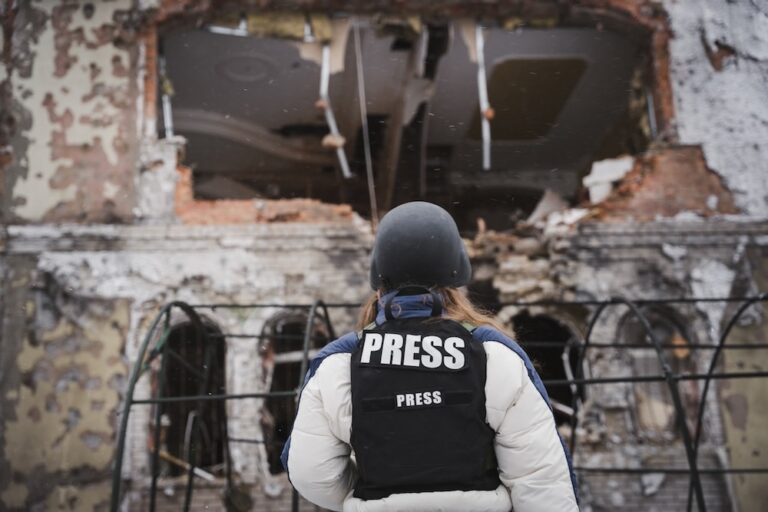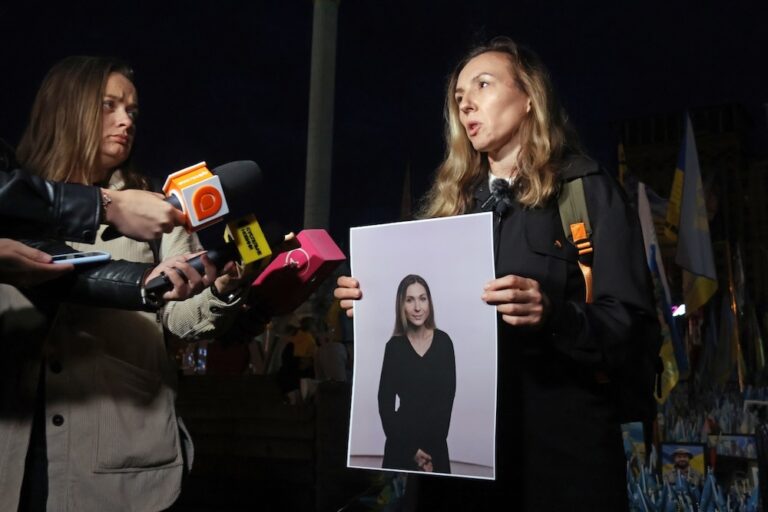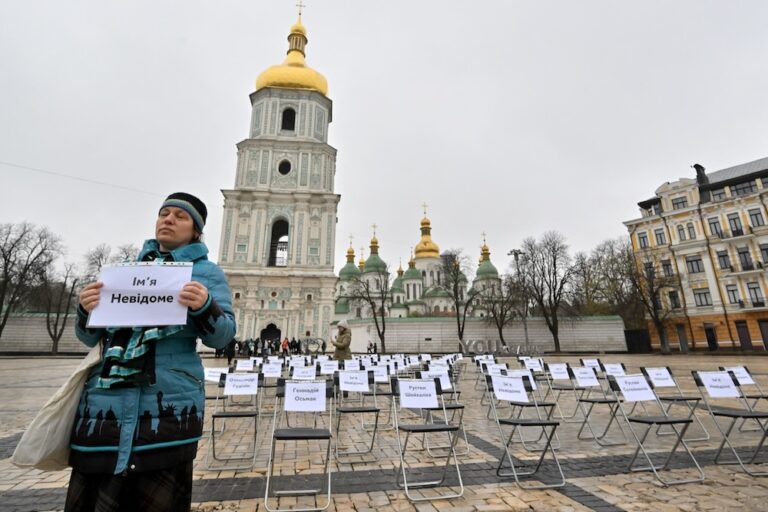(RSF/IFEX) – In a letter sent to the United States ambassador in Kiev, Carlos Pascual, RSF urged the FBI team in Ukraine to perform a new autopsy on the body of murdered journalist Georgy Gongadze. After months of serious failures by the Ukrainian legal authorities to do their duty in the framework of the investigation, […]
(RSF/IFEX) – In a letter sent to the United States ambassador in Kiev, Carlos Pascual, RSF urged the FBI team in Ukraine to perform a new autopsy on the body of murdered journalist Georgy Gongadze. After months of serious failures by the Ukrainian legal authorities to do their duty in the framework of the investigation, the FBI’s presence will enable some progress to be made,” stated Robert Ménard, RSF’s secretary general. “We are asking you to insist that the Ukrainian authorities allow the FBI team to perform a new autopsy. This new autopsy could lead to important information on the conditions in which Georgy Gongadze died. We also emphasise the fact that the attempts to intimidate the journalist in the weeks leading up to his disappearance call for an in-depth investigation. If the Ukrainian president intends to ‘bring to justice those responsible for the [journalist’s] death,’ as he recently declared, all means possible must now be engaged to find the truth,” said Ménard.
According to information received by RSF, the Ukrainian public prosecutor is rejecting any new autopsy of the murdered journalist’s body despite the victim’s mother’s expressed wishes. He has only acquiesced to a new DNA test by the FBI team, which has been in Kiev for more than ten days after President Kuchma gave his consent to an offer of help from the official American investigative agency. Even though all of the American team’s procedures and expertise must be submitted for approval to the Ukrainian authorities, the presence of this team of specialists may lead to some gaps being filled in the official Ukrainian investigation.
RSF recalls that up until now the investigation seems to have been carried out with more concern for protecting the executive branch of government from the serious allegations levelled against it than in seeking the truth. The Ukrainian public prosecutor only decided to order a DNA test of the headless body a month and a half after the body was discovered and under pressure from the threat of an independent DNA test done in Germany. He only permitted the murdered journalist’s wife to see her husband’s body for identification purposes on 10 December, more than a month after it was found, on 2 November. From 2 to 15 November, the body was kept in a provincial morgue without any refrigeration, then carried secretly to Kiev after a ruling by the regional court. To date the Ukraine general prosecutor has rejected all co-operation with the investigative committee created by parliament. He continues to refuse Gongadze’s mother and wife full access to the file, thereby denying them their civil rights. No serious investigation has yet been undertaken on the surveillance and intimidation of Gongadze by the official services in the weeks leading up to his disappearance. In a letter to the Ukraine public prosecutor, Mihailo Potebenko, the journalist himself had stated that he was being watched by operatives from the Ministry of the Interior, a surveillance that involved the tracking and interrogation of people close to him.


